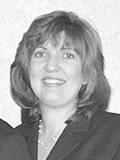
More Child Health and Safety Articles
Who Handles the Finances In Your Family?
Often a couple may divide up everyday chores. One person may take care of cooking and cleaning, while the other person may assume mowing the lawn, raking the leaves, or shoveling snow. One person may purchase groceries while the other person may pay the bills and handle financial matters.
But, what would happen if the person responsible for money matters died or suffered an incapacitating event? Lets look at a couple who had that experience.
Sidney and Pat divided up the chores. Sidney had responsibility for money matters. It worked well for them. Sidney was good with money and Pat hated all the paperwork. However, when Sidney had a stroke, became incapacitated, and died unexpectedly at age 50, Pat did not know anything about their financial affairs. In addition to grieving for the loss, there was confusion and uncertainty on the finances.
Teaching each other the skills involved in the others chores is especially important in financial matters. Its important that both parties know the basics. Heres a list of important questions for your financial well-being
1. Are the bills sent electronically, how do you pay them, and from which account?
2. Do you have any automatic money transfers set up?
3. Where are the checking accounts?
4. Where are the savings accounts?
5. Where are the brokerage accounts?
6. What are the passwords and account numbers?
7. Where are the health insurance cards kept?
8. Is there any life insurance?
9. Do you each have “durable” financial powers of attorney which continue after your incapacity and do you know their location? A durable financial power of attorney allows your appointed “agent” to manage your assets in the event of your incapacity.
10. Do you each have health care powers of attorney and where are they? A health care power of attorney allows your “agent” to make health care decisions for you in the event of your incapacity.
11. Do you each have a Trust (or a joint Trust) which covers the event of incapacity and death and do you know where the Trust is?
12. Do you have a Will and do you know its location? Even if you have a Trust, you still need a Pour-over Will to place any omitted assets into the Trust at your death.
13. Who are your trusted advisors, such as estate planning attorney, primary care physician, broker, insurance agent, and other trusted advisors?
Make sure you know the answers to the questions above. If you do not have powers of attorney for financial and health care matters and a Trust or a Will, make sure you get those in place. An estate planning attorney who focuses his or her practice in estate planning can help you. In fact, when you consult an attorney who is a member of the American Academy of Estate Planning Attorneys, not only will they tailor an estate plan to your individual needs, they will provide you with a Portfolio in which you can easily track all of your important information.
Other Articles You May Find of Interest...
- Nurturing Emotional Resilience in Children: A Guide For Parents
- Springtime Allergies: Exploring Holistic Options For Relief
- Healthy Snacks For Your Children
- Twelve Valuable Parenting Principles
- Nurturing Healthy Sleep Habits in Infants and Toddlers
- Children’s Health and Spring Time
- Chiropractic Care For Your Child

















